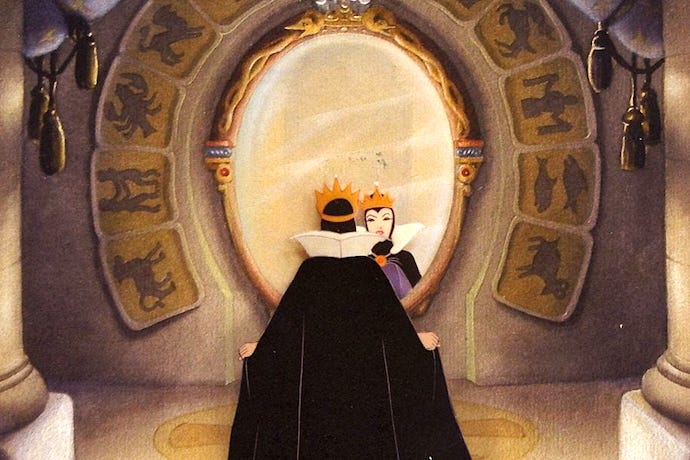It’s well established that people lie to pollsters, or at the very least put their need to believe they are “good people” over their actual feelings for, and commitments toward, the marginalized groups they may be asked about. This fact has been on my mind since I finished reading PRRI’s new report, “More Acceptance but Growing Polarization on LGBTQ Rights: Findings from the 2022 American Values Atlas.” On paper, the American public’s acceptance of the LGBTQ community is so high across a wide range of demographics that it seems like the polarization shouldn’t matter too much.
On the basis of this data alone, it is utterly perplexing that we live in a country where fewer than half of the states have basic LGBTQ nondiscrimination statutes on the books and where red states are falling over themselves to persecute transgender people through their bureaucracies and legislatures. Let alone a country in which drag performances regularly get interrupted by fascist mobs, queer people have to wonder if we’ll be the next target of a mass shooter or a group of White supremacist thugs, and where far too many trans and nonbinary Americans die by suicide as a direct result of hatred, harassment, rejection, and this hostile climate.
Yet here we are, living in a United States defined by these stark realities—and where, simultaneously, 80% of Americans reportedly “favor laws that would protect gay, lesbian, bisexual, and transgender people against discrimination in jobs, public accommodations, and housing” (even if only 48% strongly support these laws, compared to 18% who oppose nondiscrimination protections and 7% who oppose them strongly).
Support for basic LGBTQ nondiscrimination has risen rapidly in recent years (from 71% in 2015), even as right-wing backlash has gained ground, moving on from bathroom bills and school sports bans to outright bans on gender-affirming healthcare for minors and members of Christian-flag-bearing fascist mobs shouting “The fist of Christ will come down on you very soon!” at people just trying to attend a drag brunch.
To be sure, backlash regularly follows civil rights gains. The beneficiaries of the longstanding White supremacist patriarchal, Christian-normative social hierarchy will inevitably attempt to reassert themselves. Fearful bigots and bullies born to privilege do not, as a rule, give up that privilege without a fight. And without being able to put vulnerable members of scapegoated groups “in their place,” they’re apparently unable to fill the void in their shriveled little souls.
But still. According to PRRI, even two-thirds of Republicans favor nondiscrimination protections for LGBTQ people. And I am here to tell you that most of those Republicans are lying to pollsters because they do not want to be pinned down with the label of bigot that they deserve. Many are surely even lying to themselves. If we were able to get down to the nitty-gritty of their views, they would probably talk about religious freedom exemptions and the need to “protect children” as justifications for enabling or even participating in the current moral panic targeting queer, and especially trans, Americans.
PRRI’s report actually gets at some of this by asking about support for religiously based service refusals—that is, whether businesses should be legally able to refuse to serve LGBTQ customers on the grounds of their sincerely held religious beliefs. 65% of Americans are opposed to these refusals, but 57% of Republicans support them.
In any case, if the Republicans who supposedly support LGBTQ nondiscrimination (because it’s not discrimination if you call it religious freedom?) really cared about protecting the rights, liberties, and equalities of queer Americans, they would work to rein in and reform their own party—or, failing to do so, abandon it. Instead, they’ll use the data in reports like this to scream at the queer kids and liberals in their families that Republicans are not bigots when things inevitably get heated at the Easter dinner table.
Will any journalists interview the queer and pro-equality Americans who get shouted down?
Will they interview the trans people whose right-wing relatives insist that trans people are not disproportionately targeted for violence and that we’re just imagining our concerns about the potential for dehumanizing rhetoric, legal persecution, and street violence to build to genocide?
What about the gay kids or young adults who think it’s safe to come out to their parents—many of whom are Republicans who claim to be for LGBTQ nondiscrimination and same-sex marriage rights (which 49% of Republicans support according to PRRI)—only to find out that their parents actually meant it’s only okay for other people’s kids to be gay, not their own, and even then only when someone’s “sincerely held religious beliefs” aren’t in conflict? Maybe they’re outright told that being gay shouldn’t be illegal, but it’s not allowed under their parents’ roof. Or maybe they’re told that it’s kind of sort of okay to be gay in our family, but please don’t bring your partner to Thanksgiving, because Uncle Max couldn’t handle that, and for God’s sake stop posting all those pictures of you and your partner to Instagram I mean why do you have to just throw your gayness in everyone’s face all the time?
Samuel Johnson maintained that patriotism is the last refuge of a scoundrel, and on the internet these days you often find an unattributed variation in which “religion” is substituted for “patriotism.” Both religion and patriotism can indeed work wonders to protect scoundrels. But the sophisticated scoundrel understands that sometimes religion and patriotism aren’t enough to maintain one’s reputation. For the sophisticated scoundrel, plausible deniability is the ultimate refuge, the ultimate means of protecting one’s respectability. And that is why sophisticated scoundrels lie to pollsters.
For the same reason, sophisticated scoundrels also prefer to deflect from the obviously bigoted nature of certain policies they support by claiming to be very, very concerned about innocent children having access to well established medical best practices, or being exposed to age-appropriate drag performances.
None of what I’ve written here is meant as an attack on PRRI or its research. The new report offers few truly surprising findings, but it is certainly worth reading, particularly for the ways in which PRRI researchers used a structural racism index and a Christian nationalism scale, both well designed, to get at the positions of those polled that most would not openly admit to.
The use of these indicators allowed the report’s authors to convincingly demonstrate the close correlation between anti-LGBTQ positions and both internalized racism and Christian nationalism—empirical findings that bolster the abstract contention that anti-queer views are inextricably intertwined with a White supremacist, patriarchal Christian social hierarchy. It’s also quite interesting that younger Americans trend both queer and significantly less religious than their elders, facts that strike me as far from coincidental.
But even when the above-mentioned indices are used, it’s clear that some respondents aren’t being entirely honest with pollsters. After all, 53% of Christian nationalism adherents—those who score highest on the Christian nationalism scale—claim to support LGBTQ nondiscrimination. Polls can only be used to dig so far into what that does or does not mean, and that’s what I want to draw attention to with this column.
Again, my point is not that public opinion surveys should be ignored—they should not. But we should read them carefully and critically, identifying the seeming contradictions and using them as points of departure for further analysis. Hopefully, journalists reporting on the state of public opinion relative to LGBTQ acceptance will do so rather than continue to enable the plausible deniability of a “respectable” conservatism.





